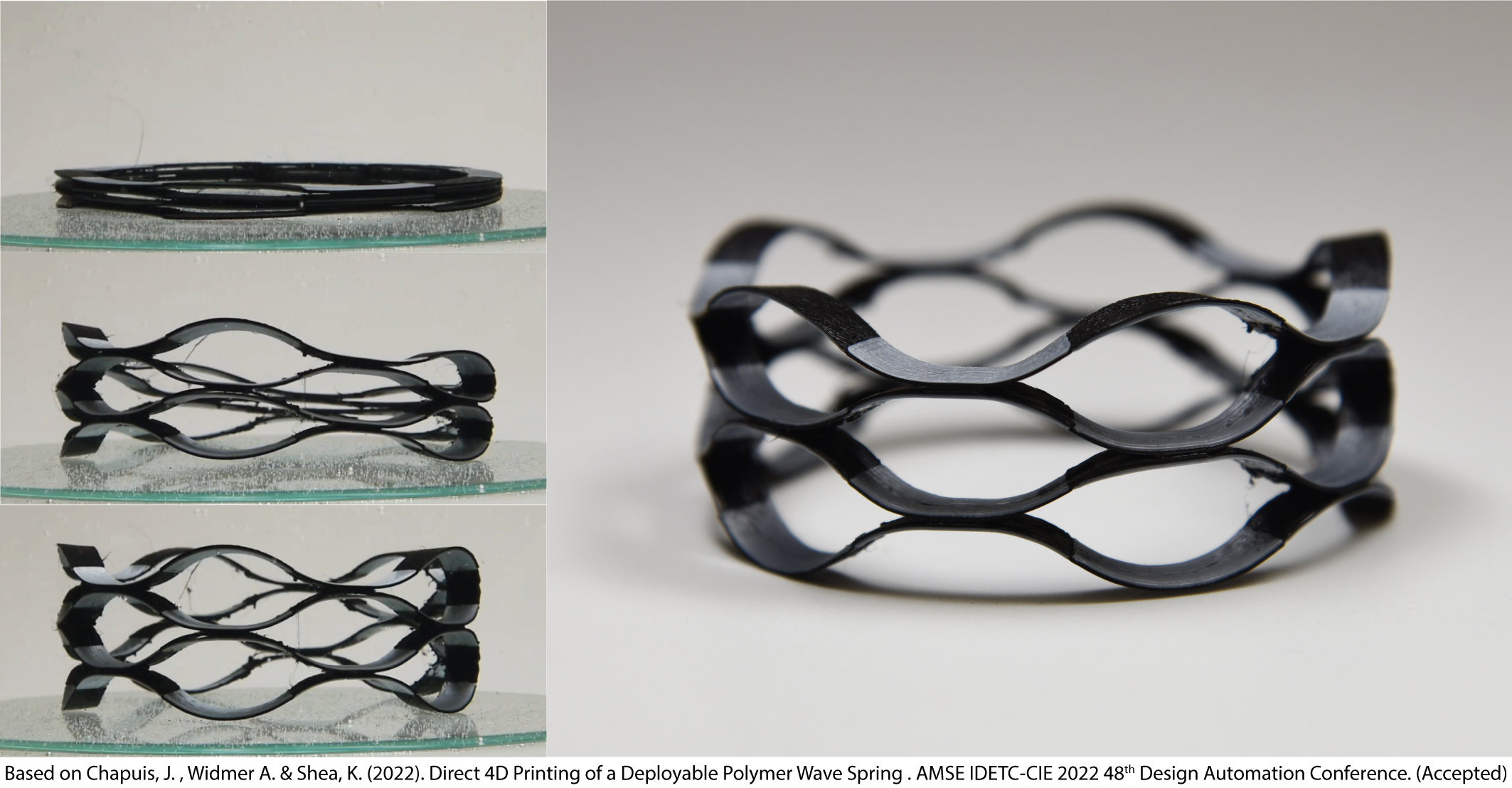4D Printed Machines

4D printing is now commonly defined as a targeted evolution of a 3D printed structure to change shape, properties, and functionality over time. These targeted evolutions are time-dependent, material-based, and predictable. 4D printing greatly enhances the design space of 3D printed structures giving engineers the possibility to create highly integrated and reconfigurable structures. 4D printing has found little application in active and passive machines since its inception.
A machine is defined as a man-made device, having a unique purpose, that augments or replaces human or animal effort for the accomplishment of physical tasks. Modern machines are complex systems that consist of structural elements, mechanisms, and control components, and include interfaces for convenient use.
The goal of this research is to determine how novel machines can be created by using 4D printing in any of the four components of a machine. 4D printed machines have the potential to bring a variety of benefits compared to conventional printed machines. Using smart materials, they have the potential to harvest energy from their surroundings to create low-energy systems. They can be highly integrated to create compact, lightweight systems that do not rely on motors, electronics, or active feedback control. They can also be highly versatile through the utilization of reconfigurable designs. The expected outcome is qualitative and quantitative insight into how the benefits of 4D printing can reshape the design of 3D printed machines and mechanisms.
